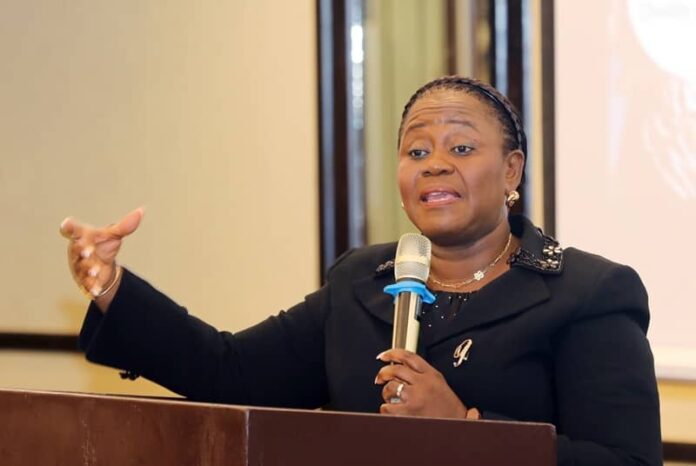Deputy Attorney General, Justice Srem-Sai, has disclosed that the suspended Chief Justice of Ghana, Gertrude Araba Esaaba Torkornoo, has filed a fresh application at the ECOWAS Community Court of Justice in Abuja, Nigeria.
This legal move seeks redress over her suspension and the process initiated for her possible removal from office.
This latest development comes amidst ongoing legal proceedings in Ghana, where three separate petitions have been filed seeking her removal. Justice Torkornoo, who was suspended by President John Dramani Mahama under Article 146 of the 1992 Constitution, has already challenged her suspension before both the Supreme Court and the High Court.
In a Facebook post on Tuesday, July 8, Justice Srem-Sai revealed that the Chief Justice filed her application at the ECOWAS Court on July 4. According to him, she is invoking claims of human rights violations arising from her suspension without a conclusive determination of the petitions against her.
“Essentially, Her Ladyship argues that by her suspension, she has effectively been removed from her official capacity without a final determination, impairing her right to function and serve in a position she was constitutionally appointed to,” Srem-Sai stated.
Meanwhile, on July 1, the Attorney General filed a motion at the Human Rights Division of the High Court, seeking to strike out Justice Torkornoo’s application for judicial review. In the State’s affidavit, deposed by State Attorney Reginald Nii Odoi, the motion claims the application contains a “grave misstatement of capacity” and fails to include “mandatory and essential parties,” making it legally defective.
President Mahama has emphasized that his administration is adhering strictly to constitutional processes.
Addressing the matter recently, he said the presidency had fulfilled its constitutional mandate and was now awaiting the outcome of the committee tasked with investigating the petitions.
Justice Torkornoo’s suspension has triggered national debate, with legal practitioners, civil society organisations, and political actors—including the opposition New Patriotic Party (NPP) and the Minority in Parliament—raising concerns about its implications for judicial independence.
However, government officials continue to maintain that due process has been followed and insist that the ongoing proceedings are consistent with Ghana’s democratic principles.
The final report from the investigative committee will be critical in determining whether the Chief Justice will be reinstated or permanently removed from office.

